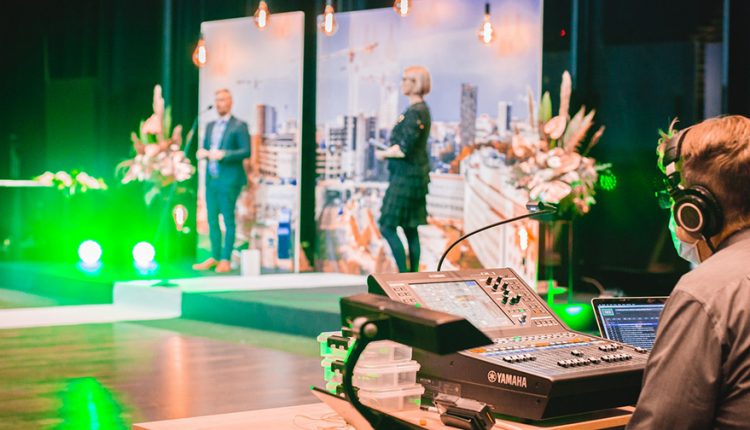Tampere Smart City Week is an event for all the people interested in smart city development. One of the week’s main events, the virtual TSCW conference held on 26th to 28th January, attracted over 1,700 participants from 66 countries. The conference offered views, experiences, and best practices about smart city projects from over 200 speakers.
The first fully virtual Tampere Smart City Week conference covered themes from mobility to health care and security to sustainability. The importance of fluent and open co-operation between private sector, public sector and actors from various industries came up with every theme. As Mari Walls, the President of Tampere University, Jaakko Stenhäll, Deputy Mayor, and Teppo Rantanen, Executive Director of City of Tampere, highlighted in their discussion, today’s challenges such as climate change and green economy demand tight co-operation from a wide range of experts.
With almost quarter of a million citizens, Tampere city is small enough to be flexible and find effective ways to communicate, yet large and dynamic enough to produce data and scale services as well as expand, test, and collaborate with other Nordic smart cities who share the similar vision.
Smart City Is For Its Citizens
The amount of data available is massive and increasing all the time. How to turn the data into real knowledge and make it useful for the society and citizens? Teppo Rantanen spoke about data driven cities and how smart city approach has shifted from technical point of view towards more human, people-oriented way of thinking. Malin K Hansen, Senior advisor, Design and Architecture Norway, spoke about the human-centric approach in more detail and how important it is in smart city development based on joint Nordic values.
A big enabler with smart cities is trust. One reason the Nordic collaboration is working so well besides the excellent network and similar thinking is trust. People trust authorities, society, and ethical use of data. Pertti Lukander, lead of Nokia Bell Labs, brought up a vision about “data sand boxes” in smart city development, meaning that anonymous, private data separated from algorithms can be used for various research purposes, analysis and findings.
Living Cities As Open Platforms
Tampere has the goal of being the smartest city in the world, and development is very active. As an example of sustainable transportation, Tampere tram traffic is currently at a phase where citizens can go for test rides. There will be a lab car integrated in the tram, enabling people to share and test their ideas.
Mika Kaartinen and Hans Kestilä from Nordic Healthcare Group shared examples of their predictive and value-based social and health care services which have been tested and developed in Tampere. One of their examples, Kotitori, provides everyday services to help elderly people live at home longer and postpone their need for heavier services.
The first Finnish system-on-chip design ecosystem, SoC Hub was launched at the conference. SoC Hub makes it possible for companies to quickly develop their own chip for prototyping or demos with low cost and brings together the whole chain of stakeholders from applications to devices. SOC Hub partner organizations presented their projects and products of chip applications from audio innovations to machine automation solutions.
Besides these few examples, conference cases covered Japan’s ambitious “Society 5.0” smart city plans, pandemic effects on digitalization, and presentations of building a safe society with data, IoT solutions and private 5G networks.
The virtual TSCW conference 2021 brought together over 1,700 participants and 200 speakers from 66 countries. Next year the conference will be held in brand new UROS LIVE arena, which will be ready by Dec 2021.

